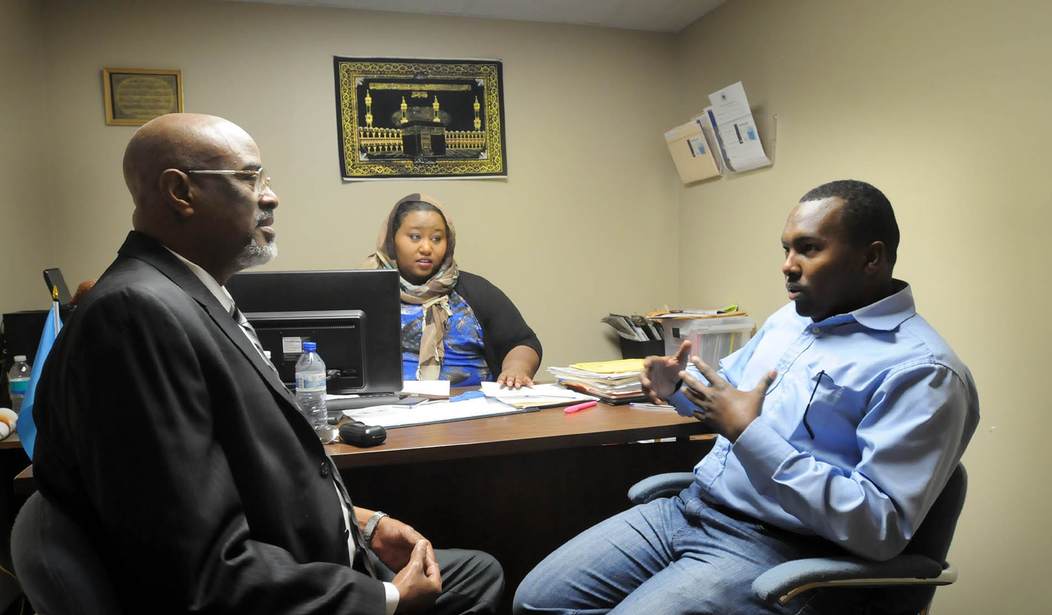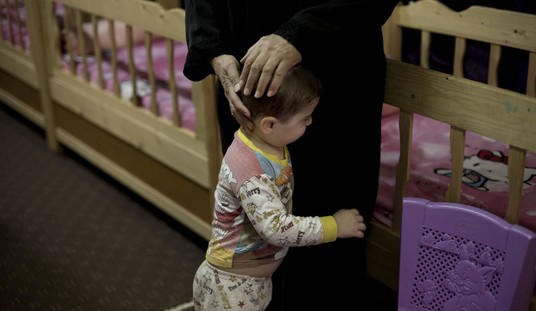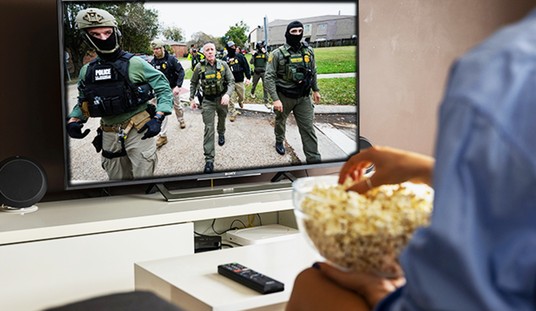Minnesota is home to a large, imported Somali Muslim population, and has been for long enough that some of them are now running for office. Naturally, the media has decided that “some” are facing a “backlash” as they campaign for office:
Two months ago, Fardousa Jama did something no other Muslim woman in south-central Minnesota has done: She filed to run for a city council seat in Mankato. Then on the Fourth of July, Jama took to the streets with her 8-year-old niece, Mai, for a door-knocking campaign, an experience she hoped would help her better connect with area constituents and learn more about issues that are important to them
But a few minutes into the effort, one thing became apparent to Jama: going door-to-door in Mankato might be a lot more difficult for a Somali-American, hijab-wearing female candidate like her than she had imagined. More than once, Jama said, people she solicited for votes responded to her with racially charged comments — “go back to where you came from” and “we don’t support a terrorist” — before slamming the door in her face. Worse yet, she added, an elderly white man even spat on her before telling her to get off his property.
After the spitting incident, Jama decided she didn’t want her niece to see the mistreatment she endured. So Jama quickly returned home to rethink her campaign strategy.
In a perfect world, no one going door to door would have to face hostility. But hey, it’s not a perfect world and, less than 20 years after 9/11, some hostility toward Muslims still might be expected in Middle America.
There are at least 15 Muslim candidates running for political positions in Minnesota this election season. And while there are no official statistics, many observers believe that is significantly more than in any previous election. Nausheena Hussain, executive director of the Minneapolis-based Reviving the Islamic Sisterhood for Empowerment, said that these candidates not only have varied leadership experience, they represent a spectrum of racial and ethnic populations.
“There are African Americans, Somalis and Asians,” she said. “The Muslim community is so diverse and it shows what Muslim diversity should look like.”
Because even diversity itself must have diversity.
Hussain also noted that Muslim candidates are running as both Democratic-Farmer-Labor and Republican, though most of the office seekers do align themselves with DFL’s progressive arm.
Read all about the increasingly far-left Democrat-Farmer-Labor Party, which is unique to “progressive” Minnesota, here.
“There was a time when there was only one Muslim candidate running for a seat,” she said. That meant that “all of Muslim voters would rally around that person and say, ‘Oh, this is the one.'” That’s no longer the case.
For Jama, the journey to become a City Council candidate in Mankato started a year and a half ago when President Donald Trump announced a series of policies restricting immigrant and refugee arrivals in the U.S. Jama wants to use the status of a city council member to raise awareness about the challenges that immigrants and refugees face in Mankato — while also performing the other expected duties of a council member: passing ordinances, managing city finances; and reviewing policy proposals.
From Tammany Hall onward, ethnic groups have rallied around their own candidates, especially when (as with the Irish and the Italians) they were on the rise. Nothing wrong with legitimate Somali-American Muslim citizens from doing the same; learning that America offers a better way of life than Somalia — including politically — can be very instructive. This presupposes the continuing aspirational validity of the melting pot, instead of the “beautiful mosaic.” Let’s see what happens.
Still, casting a political story in racial and religious terms, as this story does, serves nobody’s interests except those of the aggrieved group — which makes it propaganda. Warning of a “backlash” over what might turn out to be a simple electoral defeat is irresponsible and inflammatory. But such is journalism today…









Join the conversation as a VIP Member